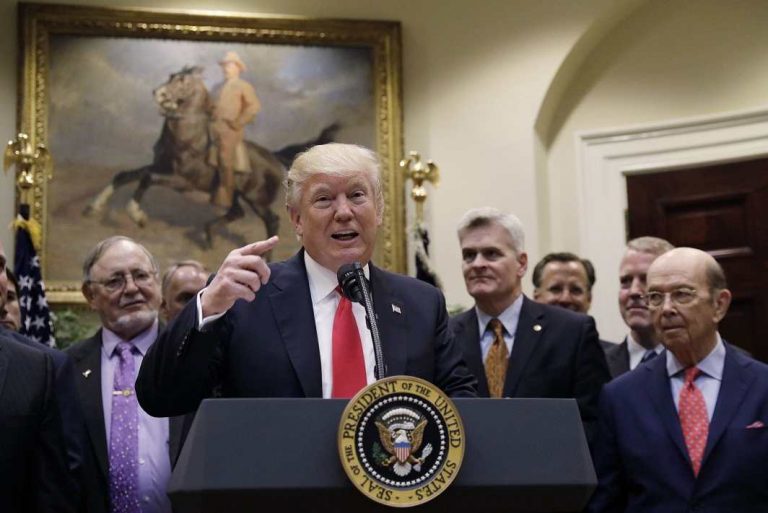
Despite some obvious similarities, the former president was a notch better, being a skilled and smart politician, tactical in every sense and concealing of motive and ambition
~By Kenneth Tiven
On the day President Richard Nixon resigned from the White House in disgrace because of the Watergate impeachment, my first child was born. August 9, 1974. It was fitting because Nixon’s personality and behaviour had dominated politics for much of the first 16 years of my journalism career. Now, adding parenting to journalism, I was free of him.
I tell this story because here we are 43 years later with another president battling claims of illegitimate political behaviour, with Russia this time. To understand some of the American reaction to Trump, it helps to grasp what the Watergate experience meant for the US’ political system and citizens who participate with passion. Forget the non-voters and low information “undecided” who barely take into account skills or policies in any candidate evaluation.
Recall that the leaked Pentagon Papers secret documents so angered Nixon that he wanted material stolen from opponents used to his political advantage. The revelation in 1972 of a secret Oval Office recording system set off a battle for the tapes of Nixon’s meeting with senior staff. So when this past week, President Trump alluded to recorded conversations in a Twitter warning to fired FBI director James Comey, reporters snapped. “The president has nothing further to add on that,” White House Press Secretary Sean Spicer responded several times when asked about this at the daily briefing.
Trump’s linguistic imprecision is legendary. Yet, few doubt his ability to demand taping. Having claimed to ask Comey three times about whether or not he was under investigation, this protocol break suggests the level of insecurity.
(Permit me an aside. In 1990, George Bush’s vice-president, Dan Quail, appeared in my California TV newsroom for an interview. He, too, was linguistically challenged. We realised he was wearing a tiny microphone on his lapel when we went to put our microphone on him. I looked at a nearby secret service agent carrying a briefcase and asked, “Is this yours?” No reply, only a tight-lipped smile.)
Watergate from plot-to-burglary-to-finish covered three years, half of it in Nixon’s second term. Trump has managed to get embroiled in just his first three months in office in a controversy that threatens his administration. Both men inspire loyalty or loathing with little in between, though they could not be more different. Yet, the odds increase almost daily that they will share a pairing in American political history.
I dealt with President Nixon for several years in Washington in person and on videotape as a journalist and again in Miami, Florida, in the same role when he had his winter White House on Key Biscayne.
After losing the presidential election to John Kennedy in 1960 and the governor’s election in California in 1962, he disappeared until 1968. Unhappiness with President Johnson’s Vietnam War policies doomed then vice-president Hubert Humphrey and Nixon got elected in a very close race. He was a skilled politician, tactical in every sense, but charmless as a public person. Never graceful in a crowd, his speech and body language communicated his sense of being an outsider, a bit of paranoia around the edges obvious to those who disliked him.
If Nixon was paranoid, Trump is clearly a mediocre businessman with no political experience whose narcissism demands constant adulation. Where Nixon was smart, tactical and concealing of motive and ambition, Trump appears to tap dance from position to position without knowing the facts.
Events in Trump’s firing of the FBI director have been compared to Nixon firing the Watergate special prosecutor. But judging from the endless changes in explanation by both President Trump and his communications team, it lacks the conviction and certitude of Nixon’s actions. The Nixon team ducked and bobbed for more than a year after the Watergate burglary, obfuscating in every possible way before senior aides resigned. It took another year before the impeachment hearings began.
The Trump Administration in just a few weeks has leaked more information than a rusting pipeline. The story changes from day to day. Meanwhile, media and government investigation into the role of Russian propaganda and intelligence keeps turning up evidence supporting contacts between the Trump campaign and Russians.
The lasting impact of Watergate is that it:
- Created a deep-seated cynicism about politicians. For all Americans alive today, it was the first time that presidential motivation could and would be questioned on non-ideological or criminal lines.
- The second impact was to realise that the Congress could be pressed hard to actually hold the executive in check as intended in the constitution.
Trump is so brazen and bewildering in his actions, tweets and behaviour that it is emotionally draining to remain as upset as circumstances might demand. For many Americans, Trump feels like a TV soap opera that has exhausted its audience with too many fake plot lines. In 1972, Watergate and the constant resignations and revelations focused the nation’s attention and put pressure on the Republican leadership in the Senate, long before 24-hour news and Twitter were available to stoke anxiety.
In 1973-74, Republican Senator Howard Baker was the influential minority member of the Senate Investigating Committee chaired by Democratic Senator Sam Ervin. Baker famously asked aloud: “What did the President know and when did he know it?” Partisanship diminished in effectiveness.
Today, those few Republicans who have been highly critical of Trump firing the FBI director are yet to endorse the idea of a special prosecutor for the Russia probe, which is what the Democrats are demanding. The results of this US election prove that America’s belief in its political exceptionalism is no more real than unicorns.
—Kenneth Tiven is former vice-president of CNN

